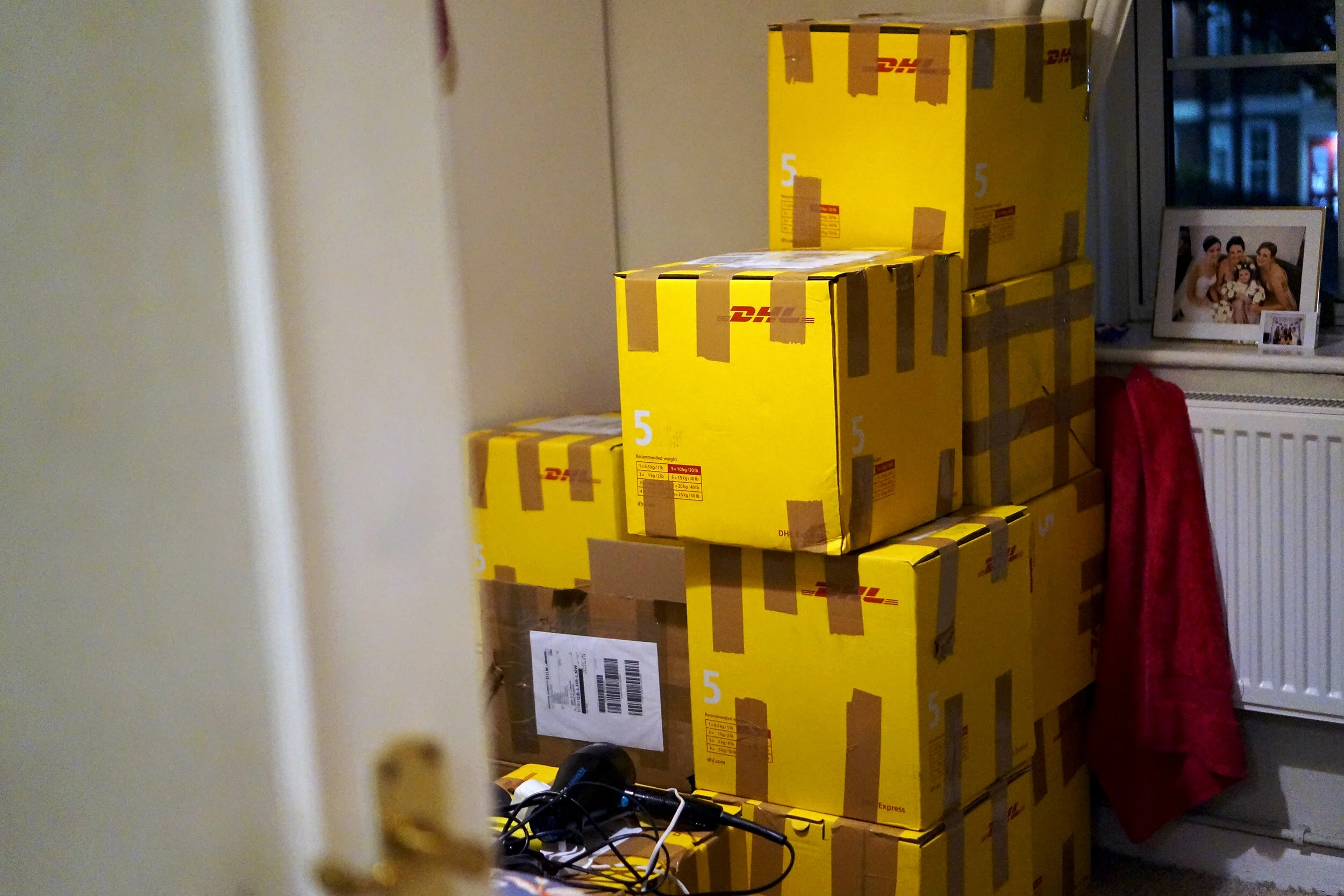The boxes arrived slowly, and then all at once: each goldenrod-yellow, rolling with bottles and cans from France, China, Argentina. I watched DHL driver after DHL driver curse as they squeezed their vans into my building's central courtyard—it was built in 1921, when deliveries were done by horse-drawn cart—and haul the boxes up to my door.
I had no choice but to stack them into perilous columns in my roommate's temporarily vacated room. Most London apartments were not designed with the storage of 12 spare crates of beer in mind.
Judging beer from home—for the World Beer Awards, in this case—involves a series of inelegant maneuvers, a rough choreography. Before each session, I placed anywhere between 16 and 24 bottles in the shared mini-fridge, crammed between my other roommate's cartons of oat milk and takeout leftovers. On my narrow desk, I set up a notebook, two empty glasses, a bottle opener, and a pint of water. Another jug, and my saucepan-turned-dump-bucket, were relegated to the windowsill. When a bottle of Belgian Brut Beer opened in a geyser of foam, it missed my laptop by inches.
I missed the social aspect of judging over those three days of tasting: the milling around before sessions, the group lunches, the ill-advised pints afterwards. Zoom tastings have the same uncanny remove as Zoom birthday parties, Zoom weddings, Zoom baby showers. But there are advantages. You can keep the bottles that you like to finish later. You can raid those takeout leftovers between sessions. And you can collapse directly into your sofa's embrace after those 103 beers have all, finally, been tasted.

